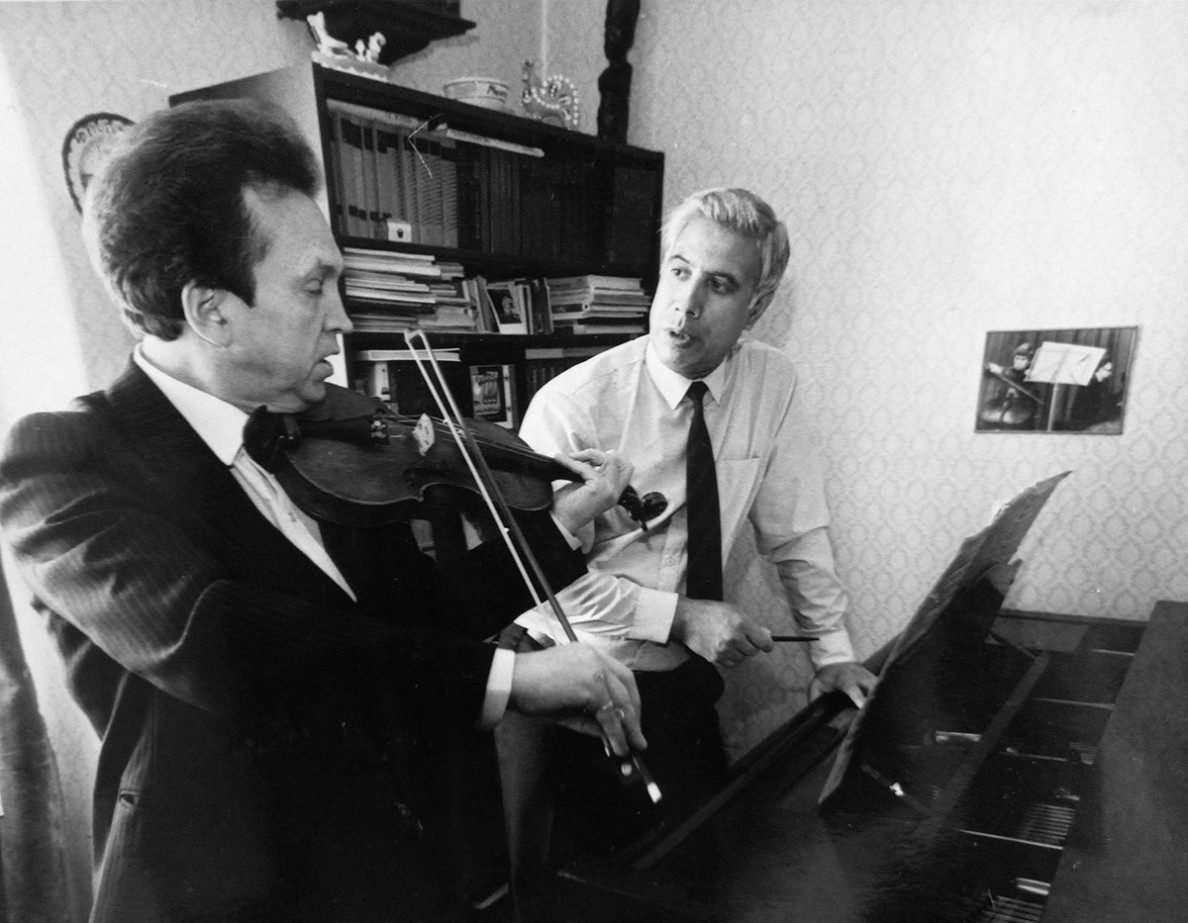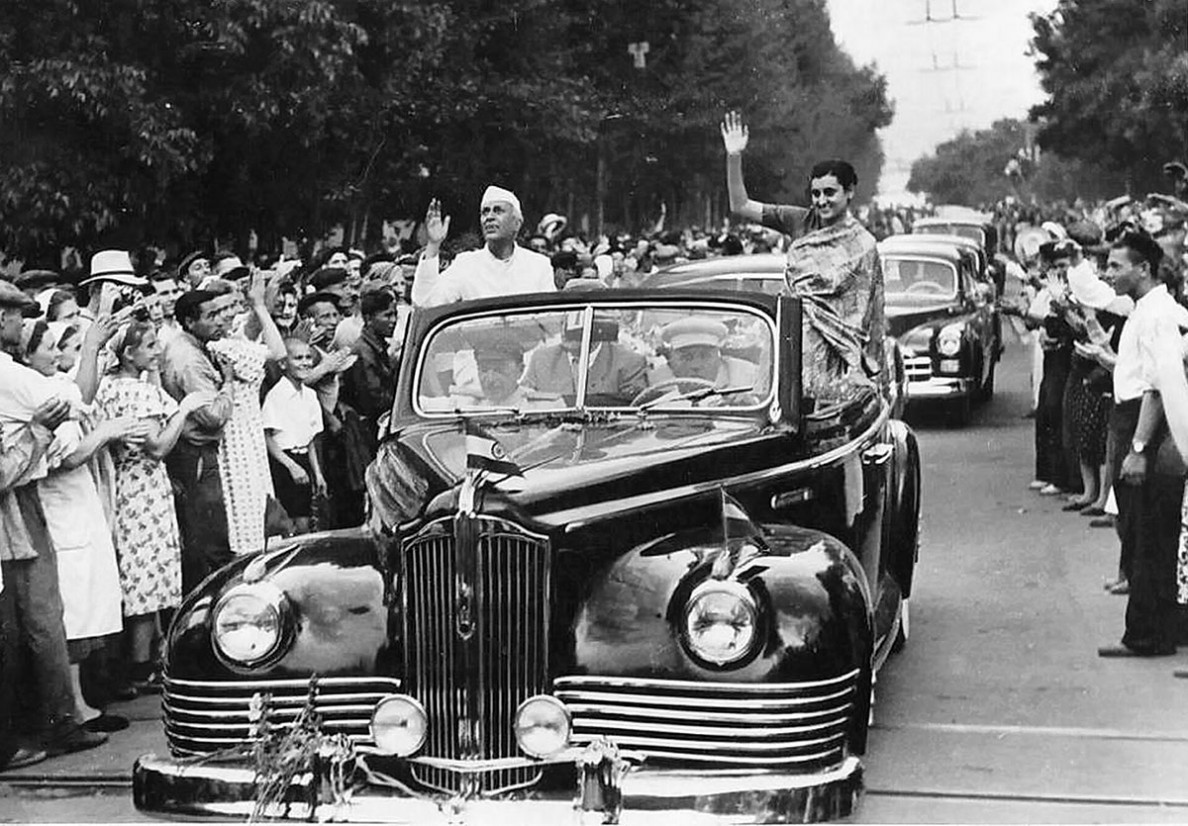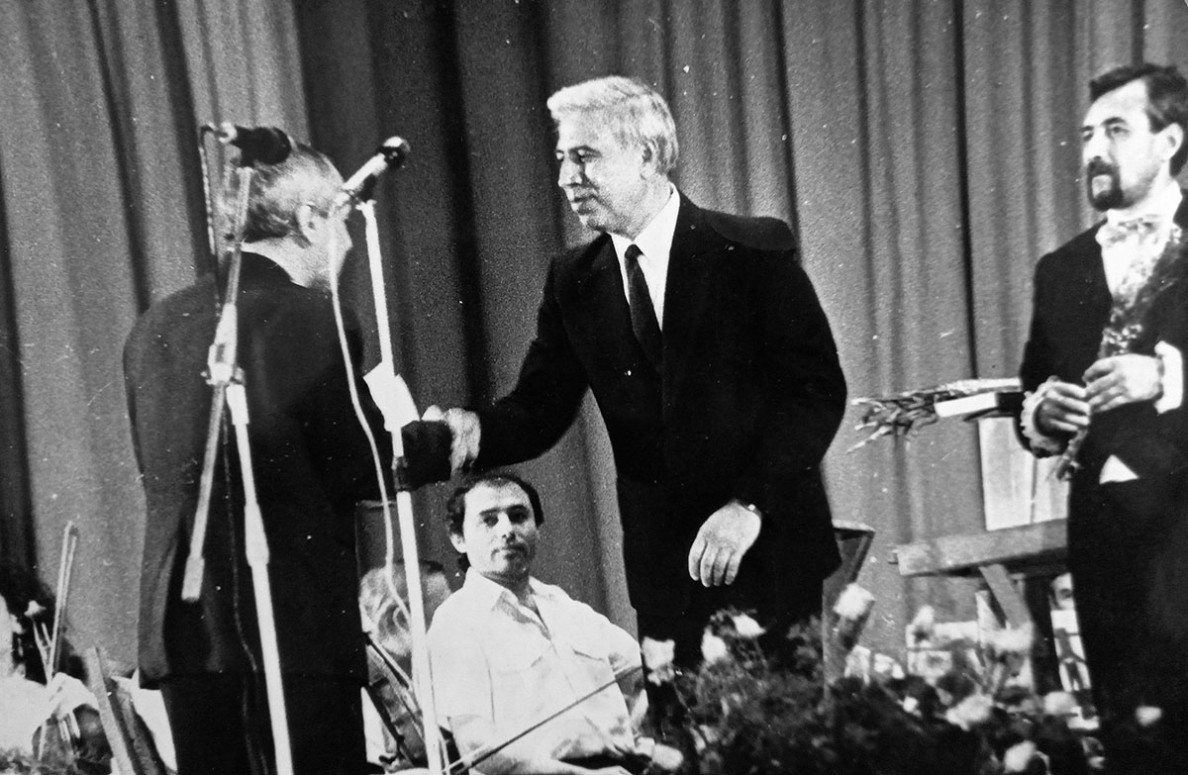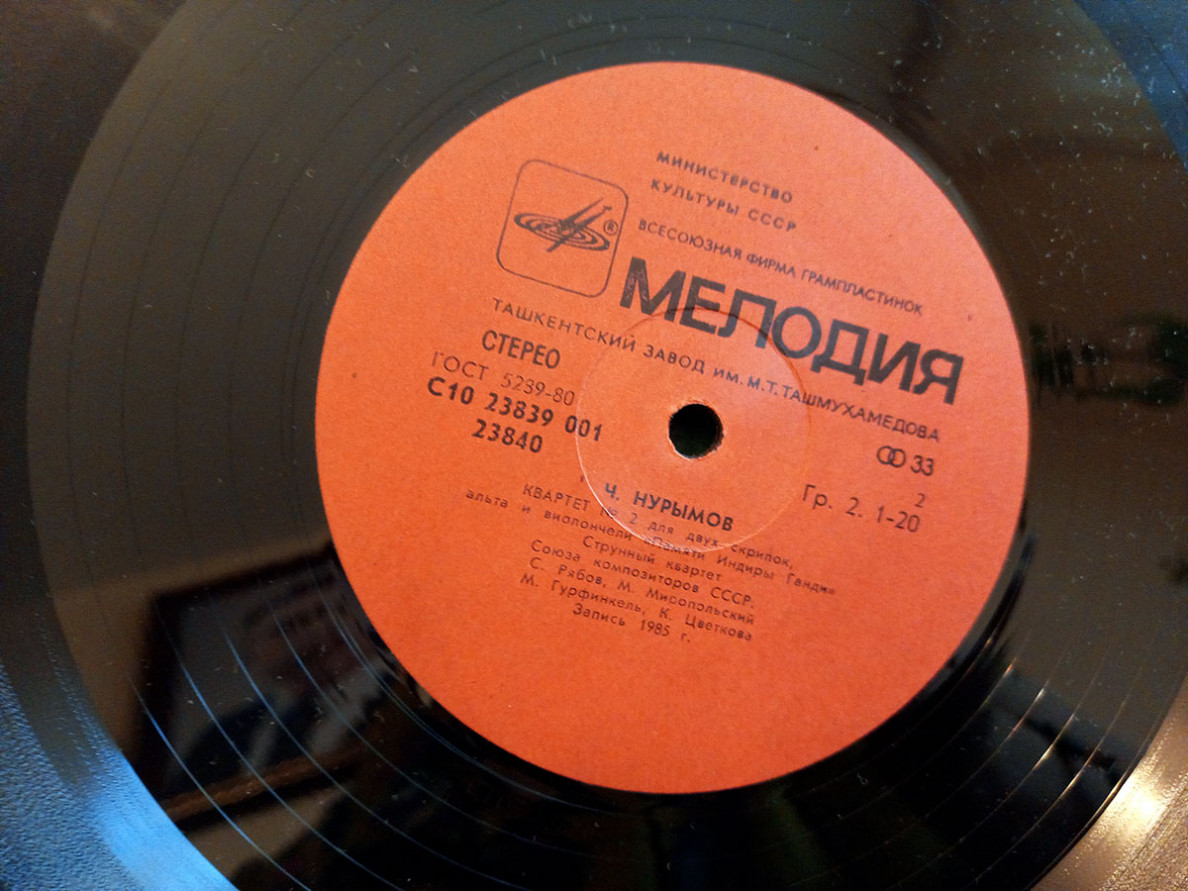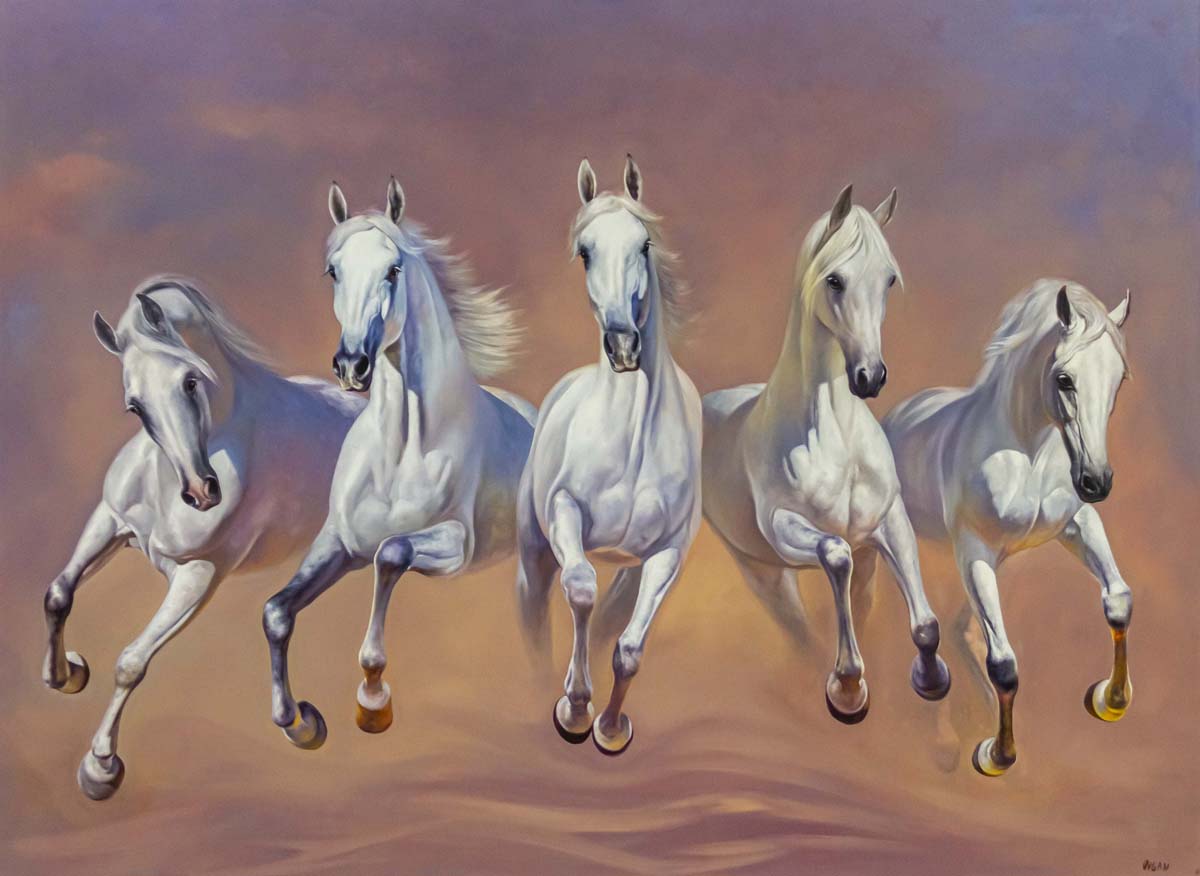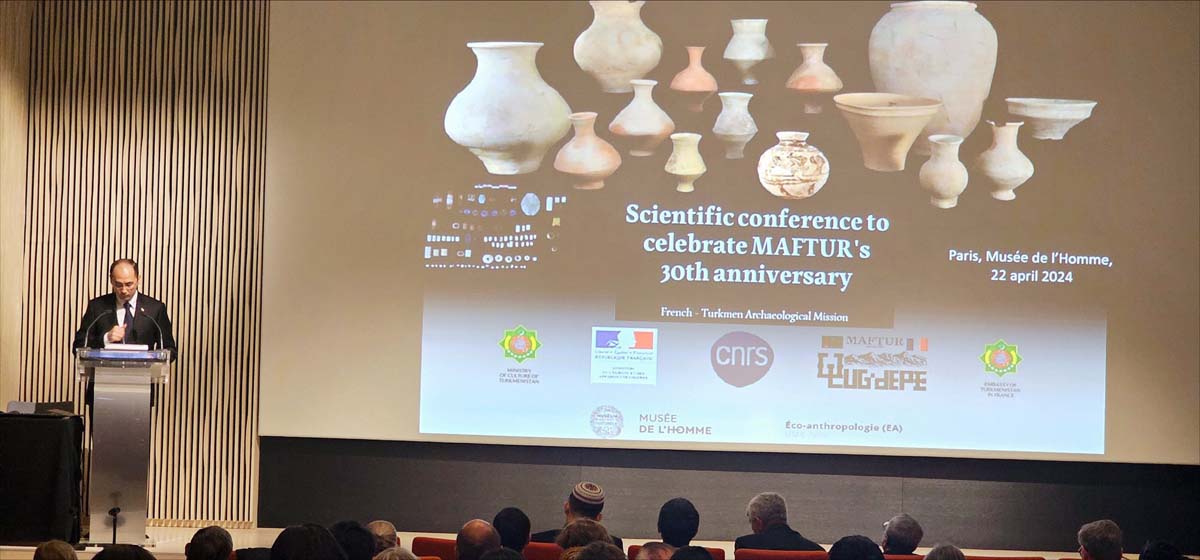It is no mere coincidence that the Medical School founded in the capital of Turkmenistan in the last century (on August 16, 1978) is named after Indira Gandhi. The daughter of India’s first Prime Minister Jawaharlal Nehru visited Ashgabat back in 1955 together with her famous father. The short but impressive visit was a truly memorable occasion for many people of Turkmenistan.
Terrible news spread around the world in 1984. India’s first and only woman Prime Minister, who had taken up the high political post after her father Jawaharlal Nehru’s death, was assassinated.
People all over the globe were deeply saddened and pained to the core by the appalling tragedy. That same year the Medical School in Ashgabat was named in honor of this outstanding woman.
Shortly afterwards, the String Quartet No. 2 ‘In Memory of Indira Gandhi’, a new composition by Honored Art Worker of Turkmenistan Chary Nurymov, was performed at the then All-Soviet Union House of Composers in Moscow.
The composer, who had spent only a few days to write the monumental piece of music, recollected: “Writing the quartet I was trying to express the depth of people’s grief and anger caused by the gruesome murder of the daughter of the people of India”.
The piece conveys the profound sadness that filled the Turkmen composer’s heart. Despite the tragic and dramatic intensity pulsating in every melodic fragment, the music protests against violence and cruelty.
The piece features distinctive elements of traditional Indian music and rhythms. Chary Nurymov was awarded the USSR State Prize for his Second Quartet dedicated to the great daughter of India.
The composer, who passed away in 1993, is remembered and greatly revered in Turkmenistan. The 80th anniversary of Chary Nurymov’s birth is widely celebrated in the country this year. His widow, Jeren Nurymova, has kept a vinyl record of the iconic piece as a treasured possession.
Cellist Kira Tsvetkova, one of the first performers of the composition, recollected: “It was clear from the very beginning that the piece is very unusual and unique in terms of thoughts expressed through it and the means of expression.”
The composer was keenly interested in Indian culture and was in regular communication with Boris Smirnov, a translator and expert on the ancient Indian epic ‘The Mahabharata’.
Chary Nurymov, who distinctly remembered Indira Gandhi’s and Jawaharlal Nehru’s historic visit to Ashgabat, was deeply shocked and shaken by the brutal murder of Gandhi. Publicist Melor Sturua wrote: “We bow our heads in tribute to the woman who bravely opened her heart defending her country’s freedom and future.”
The composer continued to write music until his death. “India teaches us a good lesson by being in no haste to adopt Western culture, and India is a country that boasts a rich spiritual heritage. There are several ways to move forward and develop and I try not to adhere to both dogmas of the past and avant-garde practices” Nurymov noted.
Today, works by Chary Nurymov are featured in the repertoire of the State Symphony Orchestra of Turkmenistan under Rasul Klychev. The Bournemouth Symphony Orchestra (Great Britain) conducted by Kirill Karabits is preparing to release immortal pieces by the Turkmen composer on disc.
The pacifist message of the String Quartet No. 2 ‘In Memory of Indira Gandhi’, which was written 37 years ago, is now seen as a metaphor.
“The only way to preserve peace for future generations is to live in peace, promote cooperation, and strive to settle problems in a spirit of goodwill. Art appears to play a significant role here. It has always transcended national borders extending the hand of friendship. This is what really matters”- Chary Nurymov’s words are still particularly relevant today.
Svetlana CHIRTSOVA




